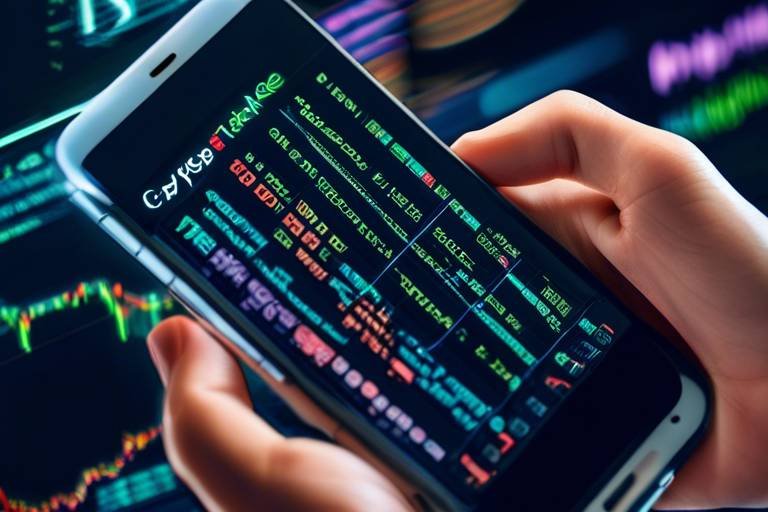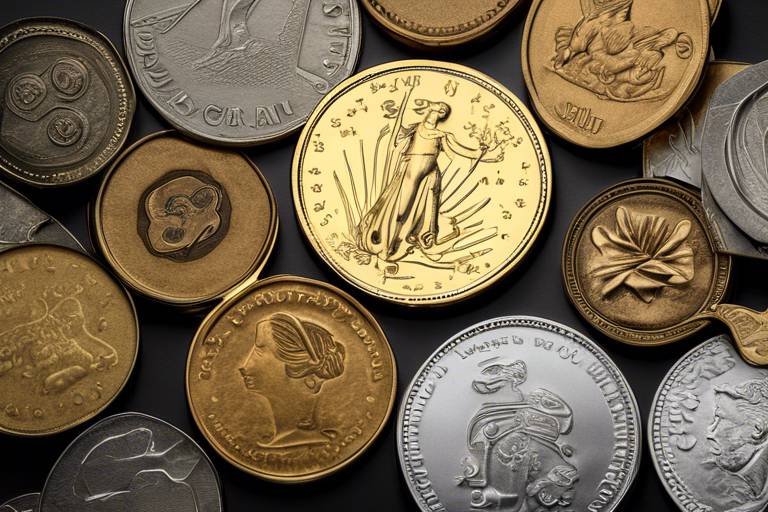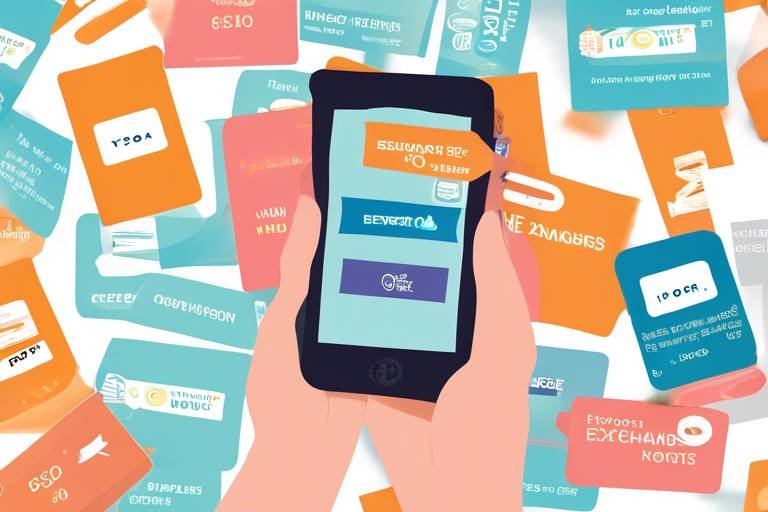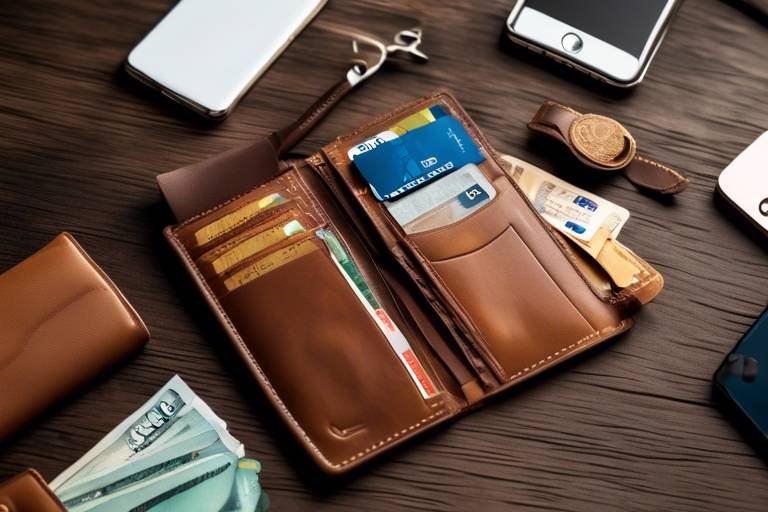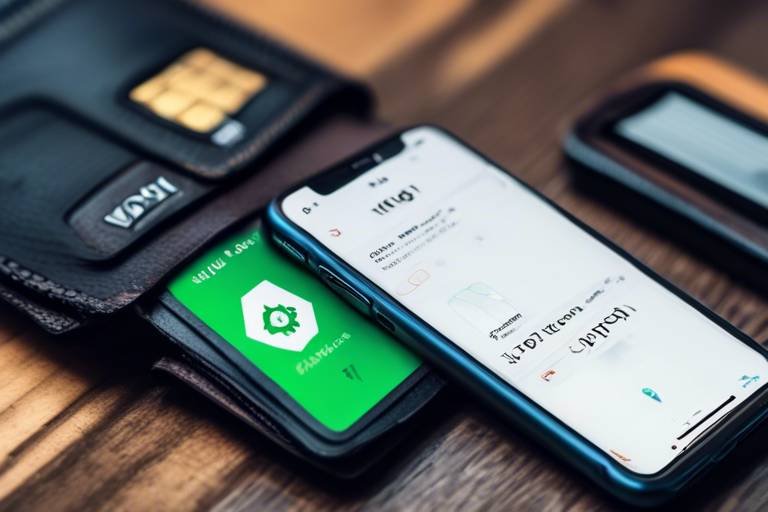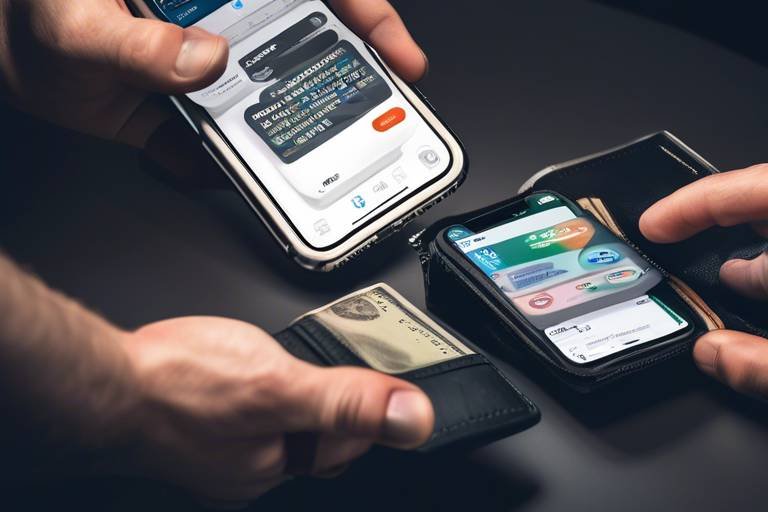How to Choose the Best Crypto Exchange for Your Needs
In the ever-evolving world of cryptocurrency, selecting the right exchange can feel like navigating a maze. With hundreds of options available, how do you determine which platform aligns with your trading goals? This article aims to guide you through the maze, highlighting essential factors like security, fees, user experience, and the variety of cryptocurrencies offered. By the end, you’ll be equipped with the knowledge to make an informed decision, ensuring your trading journey is both secure and enjoyable.
First things first, let’s break down the different types of cryptocurrency exchanges. You’ve got centralized exchanges, which are like the bustling marketplaces of the crypto world. These platforms, such as Binance and Coinbase, act as intermediaries, allowing users to buy and sell cryptocurrencies with ease. They offer a user-friendly experience but come with the caveat of trusting a third party with your funds.
Then there are decentralized exchanges (DEXs), like Uniswap and SushiSwap. These platforms allow users to trade directly with one another, cutting out the middleman. It’s akin to a peer-to-peer garage sale where you can negotiate your trades without any oversight. While DEXs provide greater privacy and control, they may lack the same level of user support and ease of use found in centralized exchanges.
Finally, we have peer-to-peer (P2P) exchanges. These platforms connect buyers and sellers directly, allowing for transactions without a central authority. Think of it as a community bulletin board where you can post your crypto needs and find someone who matches them. P2P exchanges can offer great flexibility and potentially lower fees, but they also require a bit more caution as they may not have the same safeguards in place.
When it comes to cryptocurrency, security should be your top priority. Imagine investing your hard-earned money only to lose it all due to a hack. To ensure your investments are safe, look for exchanges that implement robust security measures. For instance, two-factor authentication (2FA) is a must; it adds an extra layer of protection by requiring a second form of verification when logging in.
Another essential feature is cold storage, where the majority of funds are kept offline, away from potential hackers. This is like keeping your valuables in a safe rather than leaving them out in the open. Additionally, some exchanges offer insurance policies for digital assets, providing peace of mind in case of unforeseen circumstances.
Next up, let’s talk about fees. Every exchange has its own fee structure, and understanding these costs is crucial for maximizing your profits. Trading fees are typically a percentage of the transaction amount, and while they may seem small, they can add up quickly. Withdrawal fees and deposit fees are also important to consider, as they can impact your overall trading experience.
| Fee Type | Description | Average Cost |
|---|---|---|
| Trading Fee | Percentage charged per transaction | 0.1% - 0.5% |
| Withdrawal Fee | Fee for withdrawing funds | $0.1 - $5 |
| Deposit Fee | Fee for depositing funds | Varies by method |
Always read the fine print and calculate how these fees will affect your trading strategy. A platform with lower fees may seem appealing, but if it compromises on security or user experience, it might not be worth it.
A smooth user experience can make all the difference when trading cryptocurrencies. Imagine trying to navigate a complicated website while you’re in the middle of a trade—it’s enough to make anyone pull their hair out! Look for exchanges with intuitive interfaces that simplify the buying and selling process. Mobile accessibility is also crucial; you want to be able to trade on the go without any hiccups.
Additionally, consider the quality of customer support. If you run into issues, you want to know that help is just a click away. Check if the exchange offers live chat, email support, or a comprehensive FAQ section to assist you whenever you need it.
Not all exchanges offer the same selection of cryptocurrencies, and this can significantly impact your investment strategy. If you’re looking to invest in specific altcoins, ensure that the exchange you choose supports them. Some platforms focus on major coins like Bitcoin and Ethereum, while others provide a wider range of options, including lesser-known tokens.
Having access to a diverse range of cryptocurrencies can enhance your trading opportunities and help you diversify your portfolio. So, take the time to explore the available coins before making a decision.
Liquidity is another critical factor to consider. High liquidity means that there are enough buyers and sellers in the market, allowing you to execute trades quickly and at favorable prices. Think of it as a busy highway; the more vehicles there are, the smoother the traffic flows. Look for exchanges with high trading volumes to ensure you can buy or sell your assets without significant price fluctuations.
In the crypto world, regulations can vary significantly by country. It’s essential to choose exchanges that comply with local laws to mitigate risks. Regulatory compliance is like following traffic rules; it keeps everyone safe and ensures smooth operations. Make sure the exchange you select is registered with relevant authorities and follows best practices in the industry.
Finally, don’t underestimate the power of user reviews. They can provide valuable insights into an exchange’s reliability and performance. Check online forums, social media, and review sites to gather feedback from other users. Look for patterns in the reviews—if multiple users report issues with withdrawals or customer support, it’s a red flag. A reputable exchange will have a solid track record and a positive reputation in the crypto community.
- What is the best cryptocurrency exchange for beginners? - It often depends on personal preference, but platforms like Coinbase and Binance are popular for their user-friendly interfaces.
- Are decentralized exchanges safer than centralized ones? - DEXs offer more privacy, but centralized exchanges tend to have better security measures in place.
- How do I know if an exchange is regulated? - Check the exchange’s website for compliance information and verify with local regulatory bodies.
- What should I do if I encounter issues with an exchange? - Contact customer support immediately and consult online forums for advice from other users.
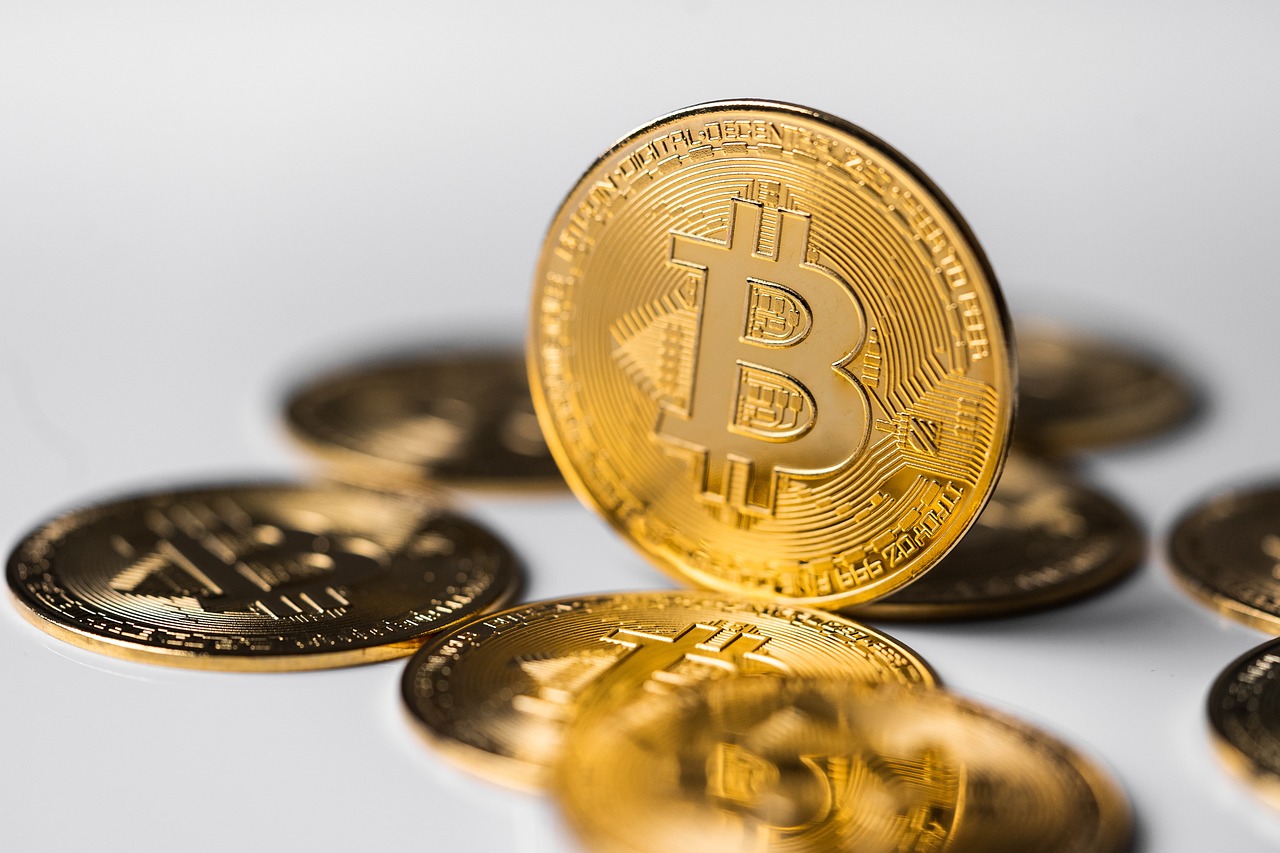
Understanding Different Types of Exchanges
When diving into the world of cryptocurrency, one of the first decisions you'll face is choosing the right type of exchange. It's a bit like picking the right vehicle for a road trip; each type of exchange has its unique features, advantages, and disadvantages that cater to different trading needs and preferences. Understanding these types can help you navigate the often turbulent waters of crypto trading with ease and confidence.
There are three primary types of exchanges: centralized exchanges (CEX), decentralized exchanges (DEX), and peer-to-peer (P2P) exchanges. Each serves a distinct purpose and audience, so let’s break them down.
Centralized Exchanges (CEX) are the most common and user-friendly platforms for trading cryptocurrencies. Think of them as your local bank; they act as intermediaries between buyers and sellers. Users create accounts, deposit funds, and trade on the platform, which manages the order book and ensures liquidity. Popular examples include Binance, Coinbase, and Kraken. While they offer a seamless experience and high liquidity, they also come with risks. Since they hold your funds, they are prime targets for hackers. Therefore, understanding their security measures is crucial.
On the other hand, Decentralized Exchanges (DEX) operate without a central authority. They allow users to trade directly with one another, using smart contracts on blockchain technology. Imagine a marketplace where you can trade goods without a middleman; that’s essentially what a DEX does. While platforms like Uniswap and SushiSwap offer enhanced privacy and control over your funds, they can be complex for beginners and may have lower liquidity compared to CEXs. Additionally, the lack of customer support can be daunting if you encounter issues.
Lastly, we have Peer-to-Peer Exchanges (P2P), which facilitate direct transactions between users. These platforms, such as LocalBitcoins and Paxful, allow buyers and sellers to negotiate terms and trade directly, often using various payment methods. This setup is akin to a garage sale where you haggle over prices. P2P exchanges are great for those looking for flexibility and anonymity, but they come with their own set of challenges, like the need for due diligence to avoid scams.
To summarize, here’s a quick comparison of the three types of exchanges:
| Type of Exchange | Pros | Cons |
|---|---|---|
| Centralized Exchanges (CEX) | User-friendly, high liquidity, robust trading features | Security risks, reliance on the platform |
| Decentralized Exchanges (DEX) | Privacy, control over funds, lower fees | Complex for beginners, lower liquidity |
| Peer-to-Peer Exchanges (P2P) | Flexibility, anonymity, diverse payment options | Risk of scams, less user support |
In conclusion, selecting the right exchange is crucial for your trading journey. Each type offers unique benefits and challenges, so it’s essential to assess your individual needs and preferences before making a choice. Whether you prioritize security, ease of use, or trading flexibility, understanding these different types of exchanges will empower you to make informed decisions in the dynamic world of cryptocurrency.

Evaluating Security Features
When it comes to choosing a cryptocurrency exchange, one of the most critical aspects you need to consider is security. With the rise of digital currencies, the number of hacking incidents and fraud cases has also increased, making it essential to ensure that your chosen platform employs robust security measures. You wouldn’t leave your front door wide open, would you? Similarly, you must safeguard your investments by selecting an exchange that prioritizes security.
So, what should you look for when evaluating the security features of a crypto exchange? Here are some key aspects to consider:
- Two-Factor Authentication (2FA): This is a must-have feature. 2FA adds an extra layer of security by requiring not just a password but also a second form of verification, such as a code sent to your mobile device. It’s like needing both a key and a fingerprint to unlock a safe.
- Cold Storage: Reputable exchanges often store the majority of their cryptocurrencies in cold storage, which means they are kept offline and away from potential hackers. Think of this as keeping your cash in a safe rather than in your wallet.
- Insurance Policies: Some exchanges offer insurance for their users’ funds. While this doesn’t mean your money is entirely risk-free, it does provide peace of mind knowing that you have some level of protection against unforeseen circumstances.
Additionally, you should also look for exchanges that have a history of security breaches and how they handled those situations. Transparency is key; a platform that openly communicates its security policies and any past incidents demonstrates a commitment to protecting its users. For instance, if an exchange has experienced a hack, did they reimburse affected users? Did they implement new security measures to prevent future incidents? These are crucial questions to ask.
Moreover, consider whether the exchange has been audited by third-party security firms. Regular audits can help ensure that the exchange adheres to industry standards and best practices. It’s like having a certified mechanic check your car to ensure everything is running smoothly.
In conclusion, evaluating security features should be at the forefront of your decision-making process when choosing a cryptocurrency exchange. By prioritizing exchanges that offer robust security measures, you can significantly reduce the risks associated with trading cryptocurrencies. Remember, in the world of digital assets, safety should never be an afterthought!
1. What is two-factor authentication (2FA)?
Two-factor authentication is a security process that requires two different forms of identification before granting access to an account. This typically includes something you know (like a password) and something you have (like a mobile device).
2. Why is cold storage important?
Cold storage is essential as it keeps the majority of an exchange's funds offline, making them less vulnerable to hacking attempts. It’s a best practice for securing digital assets.
3. How can I find out if an exchange has been hacked before?
You can research online for news articles or user reviews that discuss the exchange's history. Look for transparency in how they handled past security breaches.
4. What should I do if my exchange gets hacked?
If an exchange you use gets hacked, immediately change your passwords and enable any security features available. Check if the exchange offers compensation for lost funds and stay updated on their communications regarding the incident.
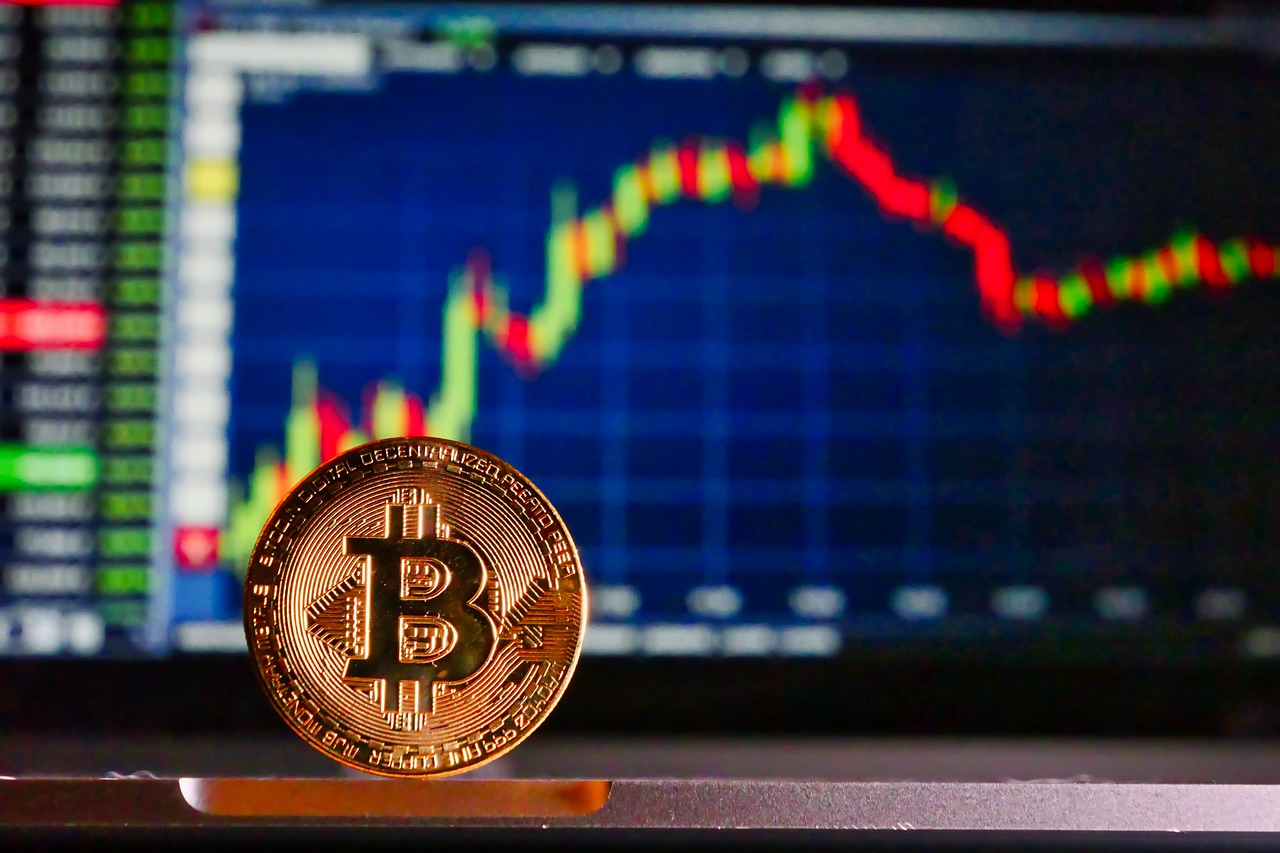
Assessing Fees and Costs
When diving into the world of cryptocurrency trading, one of the most critical aspects to consider is the fees and costs associated with using a crypto exchange. Just like shopping for a car, you wouldn’t just look at the price tag; you’d evaluate the total cost of ownership, including maintenance, fuel efficiency, and insurance. Similarly, understanding the fee structure of an exchange can significantly influence your overall trading experience and profitability.
Most exchanges have a variety of fees that can catch you off guard if you’re not paying attention. The main types of fees include:
- Trading Fees: These are the fees charged for executing trades. They can be either a flat fee per trade or a percentage of the trade amount. Some exchanges offer tiered pricing based on your trading volume, which can be beneficial if you’re a frequent trader.
- Withdrawal Fees: Whenever you decide to move your funds off the exchange, you might incur withdrawal fees. These can vary widely between exchanges and can be a fixed amount or a percentage of the total withdrawal.
- Deposit Fees: While many exchanges have eliminated deposit fees for bank transfers, others might charge for credit card transactions or certain payment methods. Always check if there are any hidden costs when funding your account.
To give you a clearer picture, let’s look at a comparison table of typical fees charged by popular exchanges:
| Exchange | Trading Fees | Withdrawal Fees | Deposit Fees |
|---|---|---|---|
| Exchange A | 0.1% - 0.5% | $0.25 | Free |
| Exchange B | 0.2% - 0.3% | $1.00 | 2.5% for credit cards |
| Exchange C | 0.15% | 0.0005 BTC | Free |
As you can see, fees can vary significantly from one platform to another. It’s crucial to not only look for the lowest fees but also to consider the overall value you’re getting from the exchange. For instance, an exchange with slightly higher fees might offer superior customer support or enhanced security features, which can be worth the extra cost.
Another factor to keep in mind is how fees can affect your trading strategy. If you’re a day trader making multiple trades a day, even a small difference in trading fees can add up quickly. On the other hand, if you’re a long-term investor making infrequent trades, the fee structure may not impact you as much. Always calculate potential costs based on your trading habits and plan accordingly.
Ultimately, understanding the fees and costs associated with a crypto exchange is about finding a balance. Look for transparency in fee structures, and don’t hesitate to reach out to customer support if anything seems unclear. After all, knowledge is power, especially in the fast-paced world of cryptocurrency trading!
Q1: What is the average trading fee on crypto exchanges?
A1: Trading fees typically range from 0.1% to 0.5% depending on the exchange and your trading volume.
Q2: Are withdrawal fees the same for all cryptocurrencies?
A2: No, withdrawal fees can vary significantly between different cryptocurrencies and exchanges.
Q3: Do all exchanges charge deposit fees?
A3: Not all exchanges charge deposit fees, especially for bank transfers, but some may impose fees for credit card transactions.
Q4: How can I find the best exchange for low fees?
A4: Compare the fee structures of various exchanges, read user reviews, and consider the overall value offered by the platform.
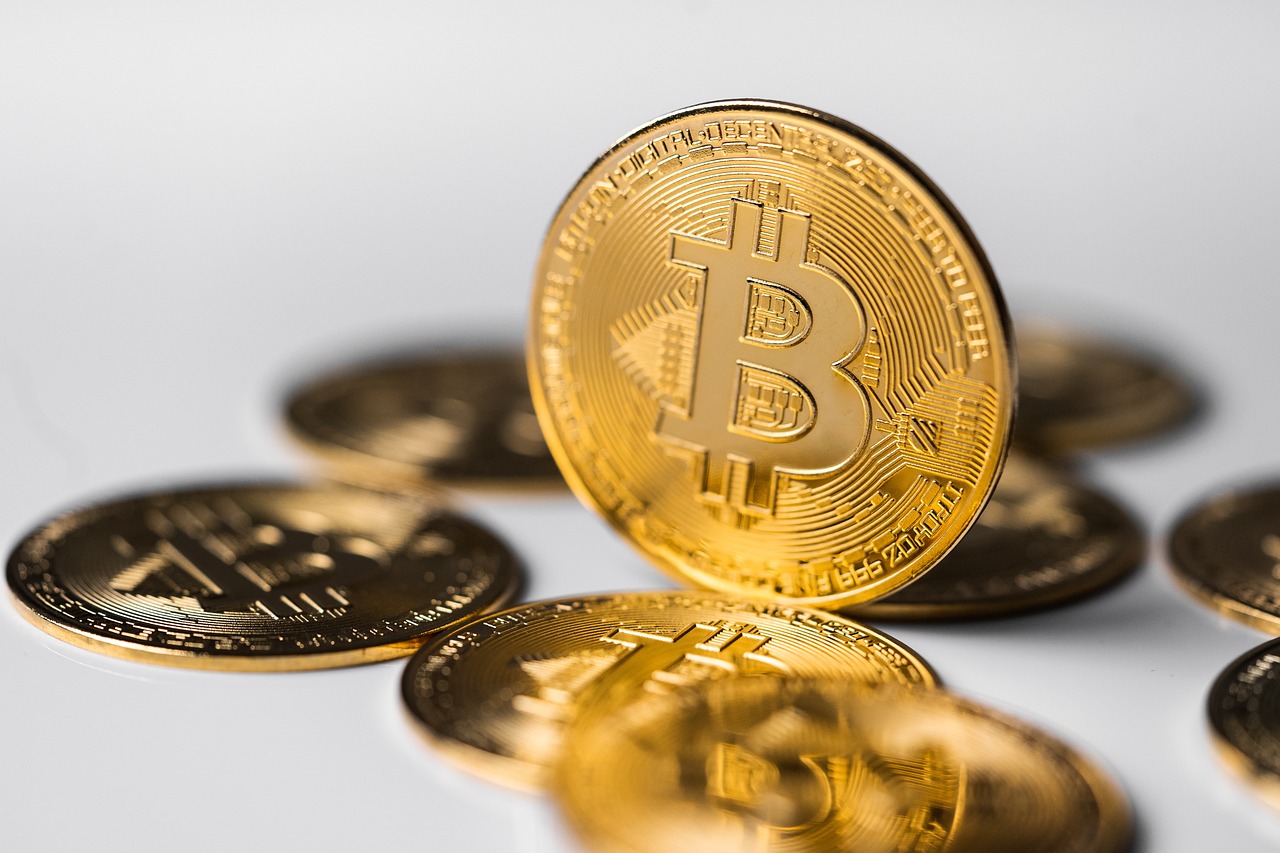
Examining User Experience
When it comes to trading cryptocurrencies, the user experience can make or break your journey. Imagine walking into a store where everything is chaotic, the staff is unhelpful, and the products are hard to find. Frustrating, right? Well, that’s exactly how a poor user experience on a crypto exchange can feel. You want to navigate seamlessly, execute trades with ease, and access your funds without jumping through hoops. So, what should you look for to ensure a smooth trading experience?
First off, the interface of the exchange plays a critical role. A clean, intuitive design allows even beginners to find their way around without feeling overwhelmed. Look for exchanges that offer customizable dashboards, where you can arrange your most-used tools and information at your fingertips. A cluttered interface can lead to mistakes, which can be costly in the fast-paced world of crypto trading.
Another key aspect is mobile accessibility. In our fast-paced lives, having the ability to trade on the go is essential. A responsive mobile app or a mobile-friendly website can make all the difference. Picture this: you’re at a coffee shop, and an exciting trading opportunity arises. If your exchange has a robust mobile platform, you can act quickly, rather than waiting until you’re back at your computer. Check reviews to see how users rate the mobile experience—this can be a great indicator of reliability.
Customer support is yet another vital component of user experience. When you encounter issues, you want to know that help is just a click away. Look for exchanges that offer multiple support channels, such as live chat, email, and even phone support. Having a responsive customer service team can turn a frustrating situation into a manageable one. Consider checking the average response times and user feedback regarding support interactions. If a platform has a reputation for slow or unhelpful support, it might be a red flag.
Lastly, don’t underestimate the importance of educational resources. A good exchange not only provides a platform for trading but also equips its users with the knowledge they need to make informed decisions. Look for exchanges that offer tutorials, webinars, and articles that explain trading strategies, market trends, and the intricacies of different cryptocurrencies. This can help you feel more confident and empowered in your trading journey.
In summary, when examining user experience on a crypto exchange, keep an eye out for:
- Intuitive Interface: Easy navigation and customizable dashboards.
- Mobile Access: A reliable app or mobile site for trading on the go.
- Customer Support: Multiple support options and quick response times.
- Educational Resources: Tools and information to help you trade smartly.
Ultimately, choosing an exchange with a solid user experience will not only make trading easier but also enhance your overall satisfaction with the platform. After all, when you’re investing your hard-earned money, you deserve a seamless and enjoyable experience.
Q: What should I consider when choosing a crypto exchange?
A: Consider factors like security, fees, user experience, available cryptocurrencies, and customer support.
Q: How important is the user interface of a crypto exchange?
A: The user interface is crucial as it affects how easily you can navigate the platform and execute trades.
Q: Can I trade on my mobile device?
A: Yes, many exchanges offer mobile apps or mobile-friendly websites for trading on the go.
Q: What resources can help me learn more about trading?
A: Look for exchanges that provide educational materials like tutorials, articles, and webinars to enhance your trading knowledge.
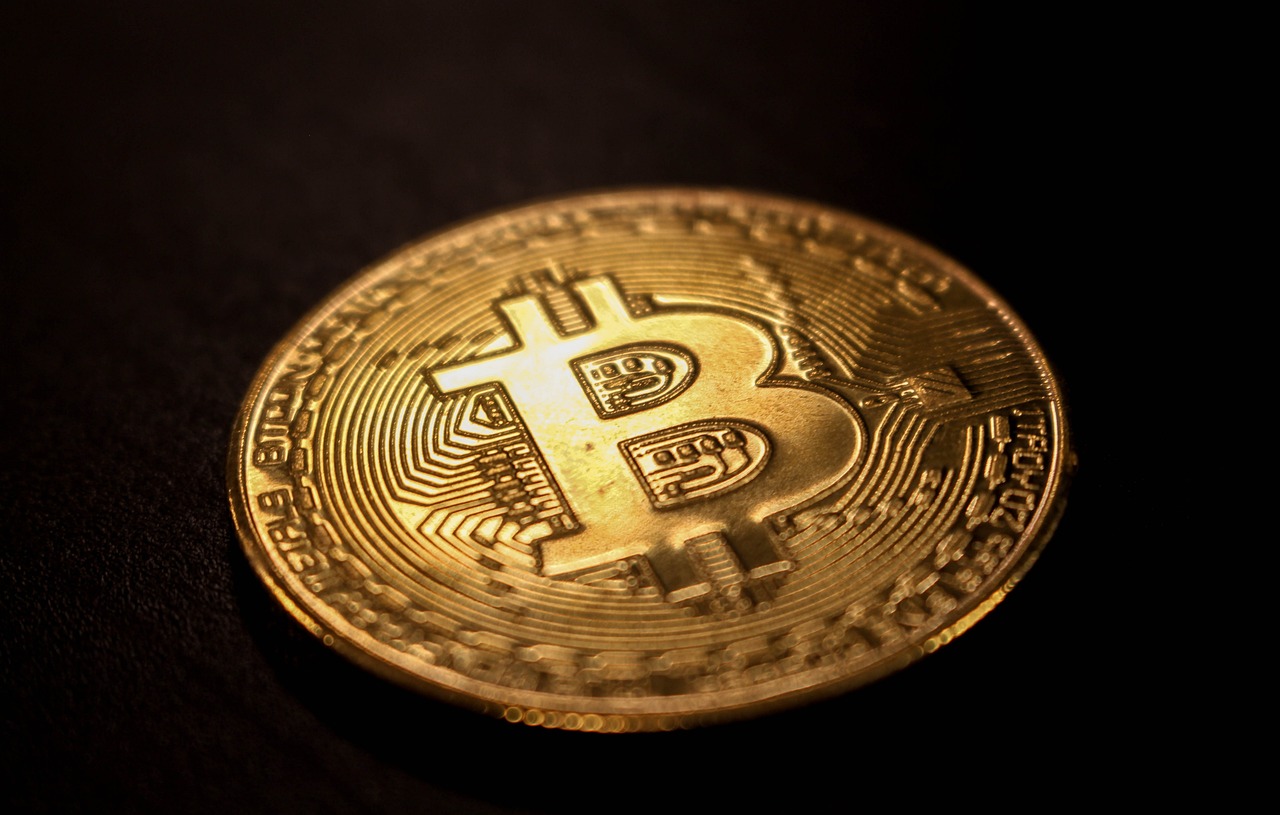
Available Cryptocurrencies
When diving into the world of cryptocurrency, one of the most exciting aspects is the **diverse range of digital assets** available for trading. Not all exchanges offer the same selection of cryptocurrencies, and this can significantly impact your investment strategy. Imagine walking into a grocery store that only sells apples; while apples can be great, what if you were craving bananas or strawberries? The same principle applies to crypto exchanges. A platform that offers a **wide variety** of cryptocurrencies can provide you with more opportunities to diversify your portfolio and capitalize on different market trends.
When evaluating the available cryptocurrencies on an exchange, consider the following factors:
- Market Cap: Look for exchanges that list cryptocurrencies with a solid market cap, as this often indicates stability and potential for growth.
- Emerging Coins: Some exchanges allow trading in lesser-known or emerging cryptocurrencies. While these can be riskier, they also offer the potential for significant returns.
- Stablecoins: Availability of stablecoins is crucial for traders looking to hedge against volatility. Ensure the exchange supports popular stablecoins like USDT or USDC.
To give you a clearer picture, here’s a simple table comparing some popular exchanges based on the number of cryptocurrencies they offer:
| Exchange | Number of Cryptocurrencies | Notable Coins |
|---|---|---|
| Binance | 600+ | BTC, ETH, BNB, ADA |
| Coinbase | 100+ | BTC, ETH, LTC, DAI |
| Kraken | 200+ | BTC, ETH, DOT, LINK |
| Gemini | 50+ | BTC, ETH, ZEC, BAT |
Having a **broad selection** of cryptocurrencies can also help you stay ahead of market trends. For instance, if a new coin is gaining traction and you want to invest before it skyrockets, having access to that coin on your exchange can make all the difference. Furthermore, consider whether the exchange supports **decentralized finance (DeFi) tokens** or **non-fungible tokens (NFTs)**, as these are rapidly growing segments of the crypto market.
In conclusion, when choosing a cryptocurrency exchange, don’t just settle for the first option that comes your way. Take your time to explore the variety of cryptocurrencies available. Remember, the more options you have, the better your chances of making informed investment decisions. After all, in the world of crypto, **diversification** isn’t just a strategy; it’s a lifeline!
1. Why is the variety of cryptocurrencies important?
Having a wide selection allows traders to diversify their portfolios and take advantage of different market opportunities.
2. What should I look for in a cryptocurrency exchange?
Consider factors like security, fees, user experience, and the range of available cryptocurrencies.
3. Are emerging cryptocurrencies worth investing in?
While they can be riskier, emerging cryptocurrencies can offer significant returns if chosen wisely.
4. How can I find out which cryptocurrencies an exchange offers?
Visit the exchange's website and check their listings or use comparison tools available online.

Liquidity and Trading Volume
When diving into the world of cryptocurrency trading, one term you'll frequently encounter is liquidity. But what does it really mean, and why is it so crucial for your trading success? Simply put, liquidity refers to how easily you can buy or sell an asset without causing a significant impact on its price. Imagine trying to sell a rare collectible; if there are only a few buyers in the market, you might have to lower your price significantly to make a sale. The same principle applies to cryptocurrencies.
High liquidity in a crypto exchange means that there are enough buyers and sellers that you can execute trades quickly and at stable prices. Conversely, low liquidity can lead to price slippage, where the price you see when placing an order is different from the final price at which the order is executed. This can be detrimental, especially for traders who rely on precision to maximize their profits.
To put things into perspective, let's consider a simple table comparing two hypothetical exchanges:
| Exchange | Average Trading Volume (24h) | Liquidity Rating |
|---|---|---|
| Exchange A | $1,000,000 | High |
| Exchange B | $100,000 | Low |
As you can see, Exchange A has significantly higher trading volume and liquidity compared to Exchange B. This means that if you were to trade on Exchange A, you could execute your buy or sell orders quickly without worrying about drastic price changes. In contrast, on Exchange B, you might find it challenging to sell your assets at your desired price, leading to potential losses.
Another aspect to consider is the trading volume, which is the total amount of an asset traded within a specific period, usually measured in 24 hours. Higher trading volumes often correlate with higher liquidity. So, when evaluating an exchange, keep an eye on both liquidity and trading volume metrics. They can give you a clearer picture of how smoothly you can trade your chosen cryptocurrencies.
In addition to these factors, it’s important to assess the market depth of the exchange. Market depth refers to the market's ability to sustain large orders without significantly affecting the price of the asset. A deeper market means that even large trades can be executed without causing a drastic price shift, which is particularly beneficial for traders who deal in large volumes.
In summary, liquidity and trading volume are pivotal aspects to consider when choosing a crypto exchange. They not only affect your trading experience but also your overall profitability. So, before you dive into trading, make sure to analyze these factors carefully. Remember, a well-informed trader is often a successful trader!
- What is liquidity in crypto trading? Liquidity refers to how easily you can buy or sell an asset without affecting its price.
- Why is trading volume important? Higher trading volume typically indicates higher liquidity, allowing for smoother transactions.
- How can I check an exchange's liquidity? Most exchanges provide trading volume data on their platforms, which you can review to assess liquidity.
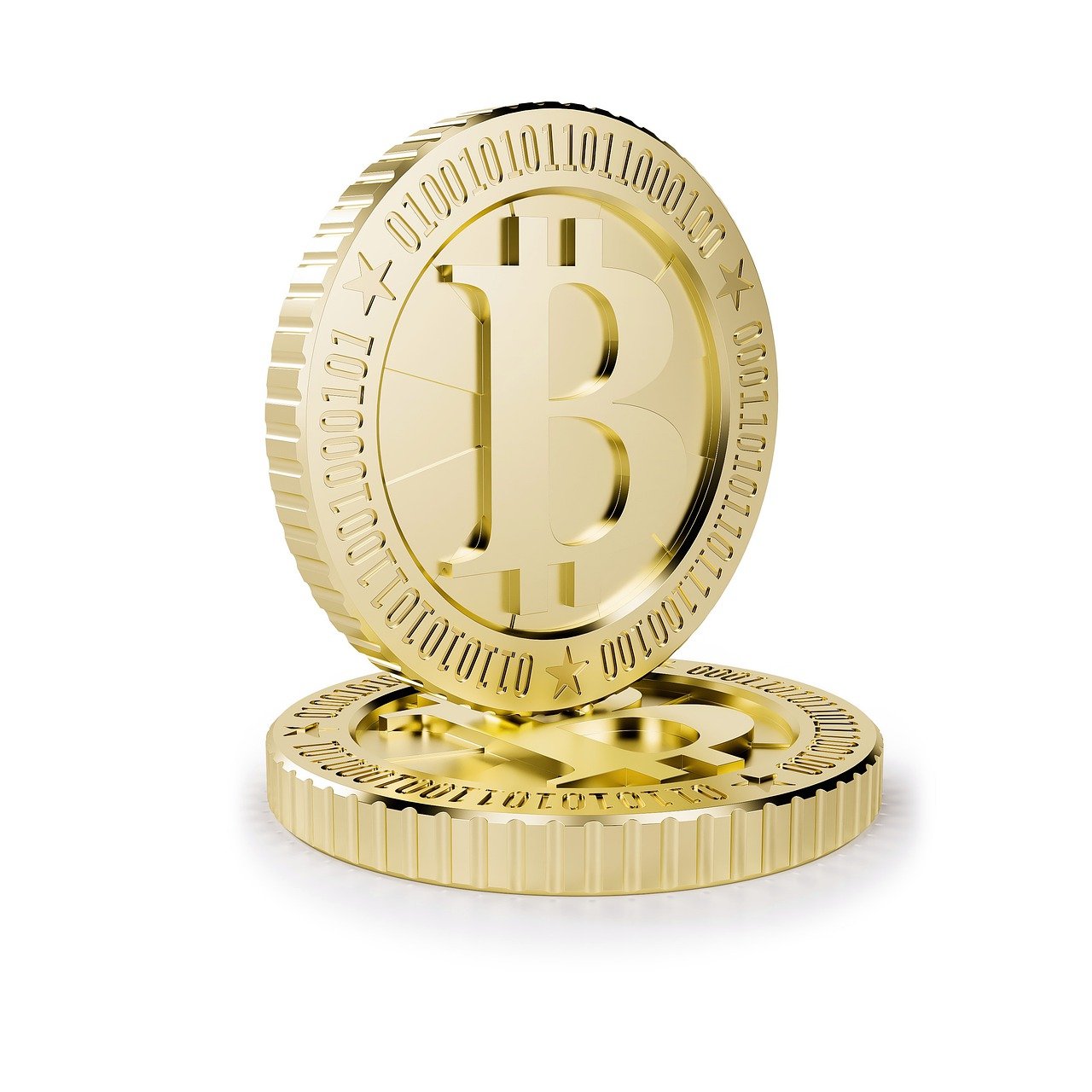
Regulatory Compliance
When diving into the world of cryptocurrency trading, one of the most crucial aspects to consider is . Just like how you wouldn’t drive a car without a valid license, trading on an exchange that doesn’t adhere to regulations can lead to a world of trouble. Regulatory compliance ensures that the exchange operates within the laws of the jurisdiction it’s based in, which can significantly reduce the risk of fraud and enhance the safety of your investments.
Different countries have different regulations regarding cryptocurrency. For instance, in the United States, exchanges must comply with the Financial Crimes Enforcement Network (FinCEN) regulations, while in Europe, the European Union’s Anti-Money Laundering (AML) directives come into play. This means that when you select an exchange, you should check whether it complies with the regulations of your country. Non-compliance can lead to the exchange being shut down, leaving you in a precarious situation.
Moreover, regulatory compliance often involves implementing Know Your Customer (KYC) policies. This means that exchanges will require you to verify your identity before you can start trading. While this might seem like a hassle, it’s actually a protective measure designed to keep illicit activities at bay. By verifying users, exchanges can help ensure that their platforms are not being used for money laundering or other illegal activities.
To give you a clearer picture, here’s a simple table outlining some key regulatory aspects you should look for when choosing a crypto exchange:
| Regulatory Aspect | Importance | Example |
|---|---|---|
| Licensing | Ensures the exchange is legally operating | Exchange holds a license from a recognized authority |
| KYC Policies | Helps prevent fraud and illegal activities | Requires users to submit identification documents |
| AML Compliance | Protects against money laundering | Regular monitoring of transactions for suspicious activity |
| Insurance Policies | Provides a safety net for user funds | Exchange has insurance coverage for digital assets |
In addition to these factors, it’s vital to stay updated with the ever-evolving regulatory landscape. Regulations can change rapidly, and what’s compliant today might not be tomorrow. Following crypto news outlets and official announcements from exchanges can help you stay informed. Remember, a compliant exchange not only protects your investments but also contributes to the overall legitimacy and stability of the cryptocurrency market.
In conclusion, when choosing a cryptocurrency exchange, don’t just jump in headfirst. Take the time to research and ensure that the platform you’re considering adheres to the necessary regulations. It’s not just about trading; it’s about trading safely and responsibly.
- What is regulatory compliance in cryptocurrency?
Regulatory compliance refers to the adherence of cryptocurrency exchanges to the laws and regulations set forth by governmental bodies to ensure safe and legal trading practices. - Why is KYC important?
KYC is important as it helps prevent fraud and illegal activities, ensuring that exchanges operate within the law. - How can I check if an exchange is compliant?
You can check an exchange's compliance by looking for their licensing information, reading their terms of service, and verifying their KYC and AML policies. - What happens if an exchange is not compliant?
If an exchange is not compliant, it may be shut down by regulatory authorities, potentially resulting in loss of access to your funds.
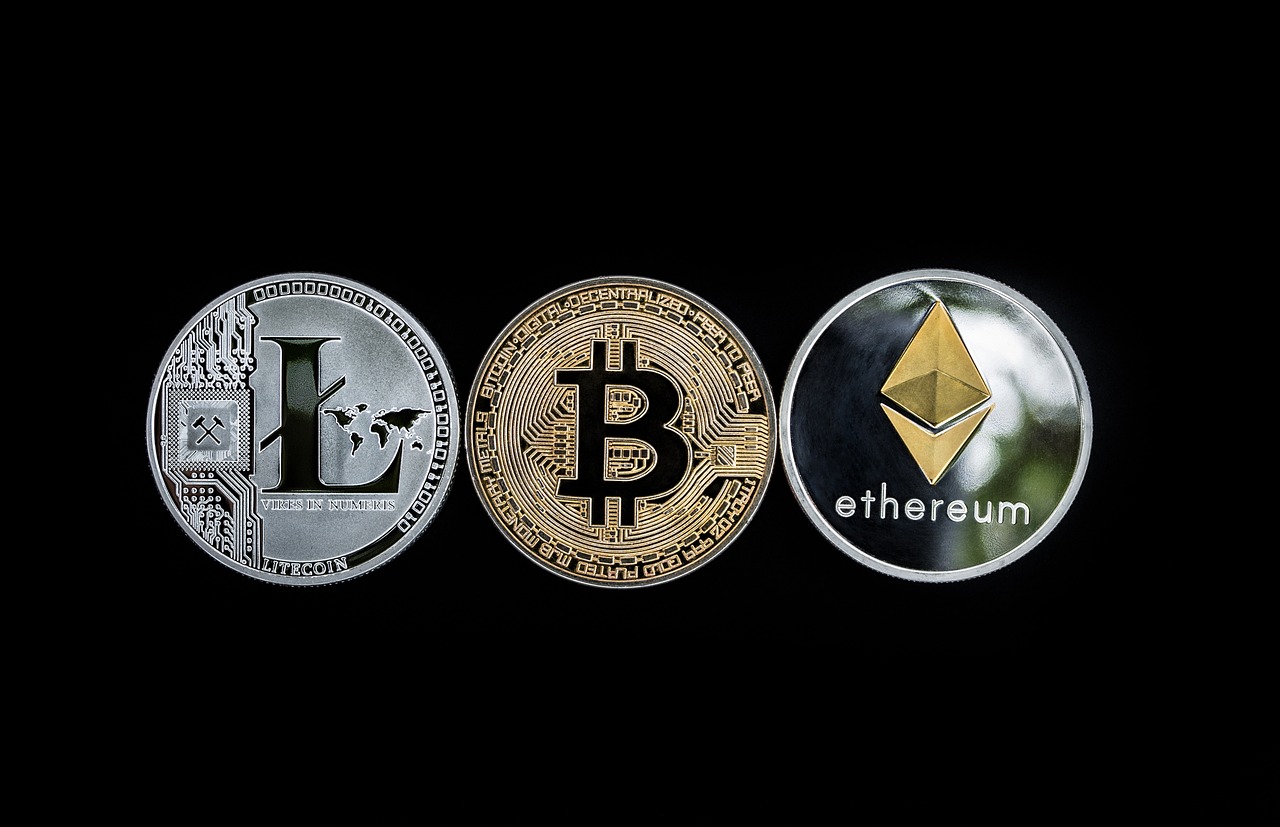
Reading User Reviews and Reputation
When it comes to choosing the best crypto exchange, one of the most valuable resources at your disposal is the collective voice of users who have walked the path before you. User reviews can serve as a compass, guiding you through the often murky waters of cryptocurrency trading. But how do you sift through the noise to find the gems of wisdom? First, it's essential to know where to look. Popular platforms like Trustpilot, Reddit, and various crypto forums can provide a wealth of information. Each of these platforms hosts discussions where users share their experiences, both positive and negative, about different exchanges.
When reading reviews, consider the overall sentiment. Are most users satisfied with their trading experience, or are there recurring issues that raise red flags? Pay special attention to the following aspects:
- Customer Support: Are users finding it easy to get help when they encounter problems? A responsive support team can make all the difference.
- Withdrawal and Deposit Issues: Look for comments about the speed and reliability of transactions. Delays or complications can be a significant headache.
- Security Concerns: Users often share experiences related to security breaches or hacks. Take note of any alarming trends.
Another important factor to consider is the exchange's reputation within the crypto community. This can often be gauged by the number of active users and the exchange's history. An exchange with a long-standing presence and a large user base is generally more trustworthy than a new, lesser-known platform. You can also check for any past controversies or legal issues that may tarnish an exchange's reputation. For instance, if an exchange has faced regulatory scrutiny or has had significant security breaches, it might be a sign to proceed with caution.
To further enhance your understanding, you might want to create a simple table to compare exchanges based on user ratings. Here's a quick example:
| Exchange | User Rating | Comments |
|---|---|---|
| Exchange A | 4.5/5 | Great customer service and fast transactions. |
| Exchange B | 3.0/5 | Frequent withdrawal delays reported. |
| Exchange C | 4.8/5 | Highly secure, but limited coin options. |
In summary, user reviews and the overall reputation of a crypto exchange are crucial factors that can significantly impact your trading experience. By paying attention to the insights shared by others, you can make a more informed decision, ultimately leading to a safer and more enjoyable trading journey. Remember, in the world of cryptocurrency, knowledge is power, and the experiences of fellow traders can be your best ally.
Q: How can I find reliable user reviews for crypto exchanges?
A: You can check platforms like Trustpilot, Reddit, and dedicated crypto forums where users share their experiences and feedback.
Q: What should I look for in user reviews?
A: Focus on aspects like customer support, transaction speed, security concerns, and overall user satisfaction.
Q: How important is the reputation of a crypto exchange?
A: Very important! A well-reputed exchange with a long-standing presence is generally more trustworthy than a new or lesser-known platform.
Frequently Asked Questions
-
What is the difference between centralized and decentralized exchanges?
Centralized exchanges act as intermediaries between buyers and sellers, providing a user-friendly platform for trading. They typically offer higher liquidity and a wide range of cryptocurrencies. On the other hand, decentralized exchanges allow users to trade directly with one another without a middleman, offering greater privacy and control over funds but often with lower liquidity.
-
How can I ensure the security of my funds on a crypto exchange?
To keep your investments safe, look for exchanges that offer robust security features like two-factor authentication, cold storage for funds, and insurance policies against hacks. Always use a strong, unique password and consider using hardware wallets for added protection.
-
What types of fees should I expect when using a crypto exchange?
Exchanges can charge various fees, including trading fees (a percentage of each transaction), withdrawal fees (for moving your crypto off the exchange), and deposit fees (for adding funds). It's crucial to compare these costs across different platforms to find one that fits your budget.
-
Why is user experience important when choosing a crypto exchange?
A smooth user experience can make trading much more enjoyable and efficient. Look for exchanges with intuitive interfaces, responsive customer support, and mobile accessibility. A platform that’s easy to navigate can save you time and reduce the likelihood of making mistakes.
-
How can I determine if an exchange has a good selection of cryptocurrencies?
Research the exchange’s list of available cryptocurrencies. A broader selection allows you to diversify your portfolio and take advantage of different investment opportunities. Check if the exchange regularly adds new coins and tokens to stay updated with market trends.
-
What does liquidity mean in the context of crypto exchanges?
Liquidity refers to how easily an asset can be bought or sold in the market without affecting its price. Higher liquidity means you can execute trades quickly and at stable prices. Always check the trading volume of an exchange to gauge its liquidity.
-
Why is regulatory compliance important for crypto exchanges?
Choosing an exchange that complies with local regulations helps protect your investments and reduces the risk of fraud. Regulatory compliance means the exchange adheres to laws designed to safeguard users, which can provide peace of mind when trading.
-
How can I find reliable user reviews for a crypto exchange?
Look for reviews on reputable websites and forums where users share their experiences. Pay attention to both positive and negative feedback, as this can give you a balanced view of the exchange’s reputation in the crypto community.

